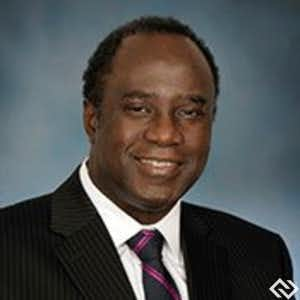Patient Develops Compulsive Behavior While Taking Antipsychotic Medication
Updated on
This case involves a 26-year-old male patient with bipolar disorder and severe depression who was prescribed the antipsychotic aripipiprazole. This patient had a family history of bipolar disorder and alcoholism. While taking the antipsychotic medication, the patient experienced a host of compulsive behaviors, specifically pathological gambling and hypersexuality. The patient accrued significant debt from his compulsive gambling, which he asserted was a direct result of his medication use. An expert in pharmacology was sought to address the use of this specific medication, its mechanism of action, and its link to compulsive behavior.
Question(s) For Expert Witness
1. Please briefly describe your knowledge and experience with antipsychotics such as aripiprazole.
2. Could you discuss aripiprazole's mechanism of action and any potential links to compulsive behavior?
Expert Witness Response E-034827
 I am a distinguished psychiatrist with a master's degree in obsessive and compulsive disorders and two doctoral degrees in the neuropsychophamacology of addiction and compulsive behaviors. My published work has been cited 11,878 times and my h-index is 46, making me one of the leading neuropsychopharmacologists in the world. I have numerous national scientific awards and also have been listed among the best doctors in the USA. I have lectured and published on pharmacological effects of aripiprazole and compulsive behavior as well as the abuse liability of medications. My textbook on addiction medication is considered one of the preeminent publications in the field. I am an experienced forensic psychiatrist and well versed in providing detailed reports, responding to interrogatives, preparing reports, and testifying in court. I am quite familiar with aripiprazole, having studied it pharmacologically and having also prescribed aripipiprazole clinically to patients. Antipsychotics can increase compulsive behaviors, especially in vulnerable patients.
I am a distinguished psychiatrist with a master's degree in obsessive and compulsive disorders and two doctoral degrees in the neuropsychophamacology of addiction and compulsive behaviors. My published work has been cited 11,878 times and my h-index is 46, making me one of the leading neuropsychopharmacologists in the world. I have numerous national scientific awards and also have been listed among the best doctors in the USA. I have lectured and published on pharmacological effects of aripiprazole and compulsive behavior as well as the abuse liability of medications. My textbook on addiction medication is considered one of the preeminent publications in the field. I am an experienced forensic psychiatrist and well versed in providing detailed reports, responding to interrogatives, preparing reports, and testifying in court. I am quite familiar with aripiprazole, having studied it pharmacologically and having also prescribed aripipiprazole clinically to patients. Antipsychotics can increase compulsive behaviors, especially in vulnerable patients.
About the author
Victoria Negron
Victoria Negron has extensive experience in journalism and thought leadership in the legal space, with a background crafting content, whitepapers, webinars, and current event articles pertaining to the role of expert witnesses in complex litigation matters. She is a skilled professional specializing in B2B product marketing and content marketing. Currently, she serves as an Enterprise Product Marketing Manager at Postman, and previously held the position of Technical Product Marketing Manager at Palantir Technologies, where she developed her skills in launch strategies, go-to-market strategy, and competitive analysis.
Her expertise in content marketing was further refined during her tenure at the Expert Institute, where she progressed from a Marketing Writer to Senior Content Marketing Manager, and eventually to Associate Director of Content & Product Marketing. In these roles, she honed her abilities in digital marketing, SEO, content strategy, and thought leadership.
Educationally, Victoria holds a Master of Business Administration from the University of Florida - Warrington College of Business and a Bachelor of Arts in Literature, Art, and Hispanic Studies from Hamilton College. Her diverse educational background and professional experience have equipped her with a robust skill set in product marketing, content development, and strategic marketing initiatives.
Subscribe to our newsletter
Join our newsletter to stay up to date on legal news, insights and product updates from Expert Institute.
Sign up nowFind an expert witness near you
What State is your case in?
Subscribe to our newsletter
Join our newsletter to stay up to date on legal news, insights and product updates from Expert Institute.



